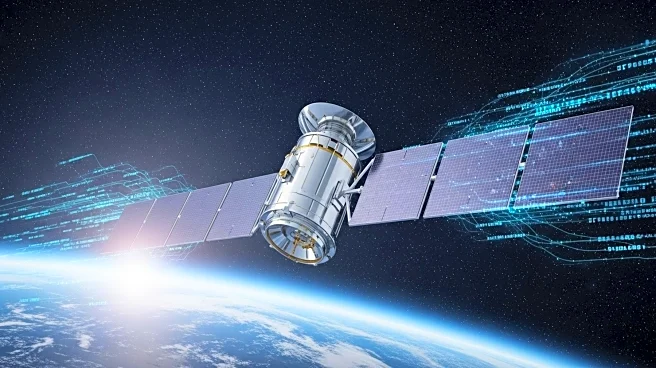What's Happening?
A study conducted by researchers from UC San Diego and the University of Maryland revealed significant vulnerabilities in satellite communications. Using basic equipment, the team intercepted unencrypted data from geostationary satellites, uncovering private calls, text messages, and even military communications. The researchers utilized a $180 satellite dish, a $195 motor system, and a $230 tuner card to capture data from the T-Mobile cellular network, in-flight Wi-Fi, and utility infrastructure communications. Alarmingly, military and law enforcement communications were also accessible, revealing sensitive information such as personnel locations. The study highlights the lack of encryption in satellite communications, which the researchers initially assumed would be secure.
Why It's Important?
The findings underscore a critical security gap in satellite communications, affecting various sectors including telecommunications, military, and law enforcement. The ease with which the researchers intercepted data raises concerns about potential exploitation by malicious entities. This vulnerability could lead to unauthorized access to sensitive information, posing risks to national security and individual privacy. The study may prompt satellite communication providers to enhance encryption protocols, safeguarding against data breaches. Stakeholders such as telecom companies, military agencies, and infrastructure providers stand to benefit from improved security measures, while failing to address these vulnerabilities could result in significant losses.
What's Next?
Following the study, affected companies and agencies have been notified, with some already implementing encryption measures. However, many entities continue to broadcast unencrypted data, indicating a need for widespread security upgrades. The research may drive industry-wide changes, encouraging providers to adopt robust encryption standards. Additionally, intelligence agencies with advanced equipment may already be exploiting these vulnerabilities, necessitating urgent action to prevent further data exposure. The study could also inspire further research into satellite communication security, potentially leading to innovative solutions.
Beyond the Headlines
The ethical implications of the study are significant, as the researchers grappled with concerns about wiretapping and data interception legality. Their passive listening approach highlights the ease of accessing unencrypted data, raising questions about the responsibility of communication providers to secure transmissions. The study may also influence regulatory policies, prompting governments to enforce stricter security standards for satellite communications. Long-term, this could lead to a cultural shift in how data privacy is perceived and protected.









